Perkins diesel engines, known for their outstanding performance and long-term reliability, have become the “heart” of various industries such as agriculture, construction, and power generation. However, even world-class engines can occasionally face starting issues.
Imagine the biting cold of an early morning, and the Perkins diesel engine you urgently need to start just won’t respond. In such moments, you may feel frustrated or anxious. But don’t worry—starting difficulties are not without solutions. By understanding the root causes of Perkins diesel engine problems and applying a few simple yet effective solutions, you can easily restore a smooth engine startup. Let’s dive in!
Part 1. Common Problems & Solutions of Perkins Diesel Engine Startup
1. Difficult Starting
Difficulty starting is a common issue with Perkins engines, often characterized by slow cranking, clicking noises, or the engine failing to start altogether. Other symptoms may include the engine cranking but not starting, or stalling shortly after starting. These problems can occur due to several causes.
Causes:
- A weak or dead battery prevents the engine from cranking.
- Blocked fuel filters or injectors limit fuel flow.
- A faulty starter motor stops the engine from cranking.
- A failing fuel pump doesn’t provide enough pressure.
- Malfunctioning glow plugs prevent proper engine heating.
Solutions: Checking and replacing the battery, cleaning or replacing fuel filters, inspecting the starter motor, and replacing faulty glow plugs.
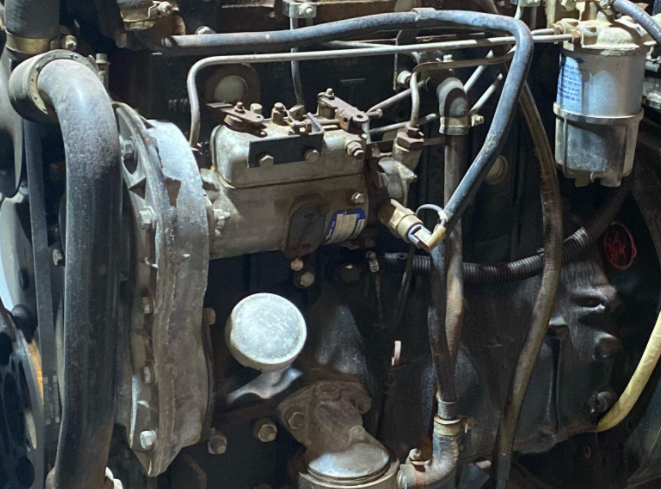
2. Engine Overheating
Engine overheating often manifested by the engine temperature gauge rising above normal levels, steam or smoke coming from the engine compartment, or the engine shutting down unexpectedly due to excessive heat. Other symptoms may include a loss of power, engine knocking, or unusual smells like burning coolant.
Causes:
- Insufficient coolant or leaks cause the engine to overheat.
- Blocked or damaged radiator reduces heat dissipation.
- Faulty water pump or coolant system leaks prevent proper coolant circulation.
- Oil contamination impairs heat dissipation and leads to overheating.
Solution: checking coolant levels, fixing leaks, replacing the water pump, and cleaning the radiator.
3. Reduced Engine Power
Reduced engine power is a common issue with engines, often characterized by a noticeable decrease in acceleration, slower response time, or the engine struggling to reach higher speeds. Other symptoms may include excessive fuel consumption, poor throttle response, or the engine stalling under load.
Causes:
- Clogged air filters restrict airflow to the engine, reducing power.
- Fuel system issues, such as clogged injectors or a failing fuel pump, hinder fuel delivery.
- Faulty turbocharger reduces the engine’s ability to compress air, leading to lower power output.
- Ignition system problems such as worn spark plugs or faulty ignition coils result in incomplete combustion, leading to power loss.
Solution: replacing air filters, cleaning fuel injectors, inspecting the turbocharger, and replacing faulty ignition components.
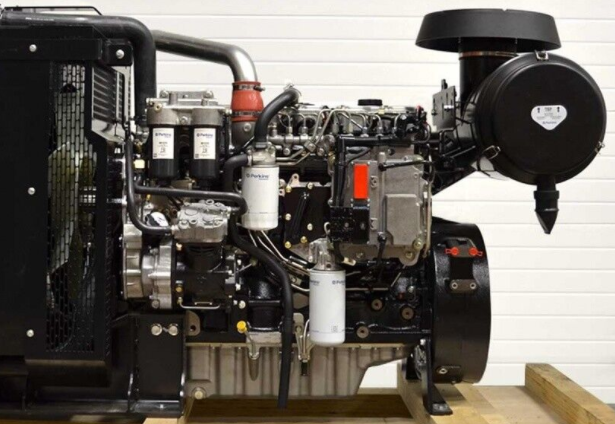
4. Increased Fuel Consumption
Increased fuel consumption might be a sign of Perkins diesel engine problem. It is often characterized by a noticeable increase in fuel usage, reduced fuel efficiency, or more frequent refueling. Other symptoms may include a decrease in engine performance, rough idling, or excessive exhaust smoke.
- Malfunctioning fuel nozzles/injectors result in improper fuel delivery, causing excessive fuel consumption.
- Malfunctioning turbocharger reduces the engine’s efficiency, leading to higher fuel consumption.
- Dirty air cleaner restricts airflow, causing the engine to consume more fuel to compensate.
- Improper set point in the engine’s fuel management system can lead to excessive fuel usage.
- Fuel leak results in fuel being lost before it reaches the engine, increasing overall consumption.
Solution: Cleaning or replacing fuel injectors, repairing the turbocharger, and replacing the air filter.
5. Increased Oil Consumption
Increased oil consumption is another issue might be encountered. This problem is often characterized by a noticeable drop in oil levels, excessive smoke from the exhaust, or the engine running rough. Other symptoms may include engine knocking, a burning oil smell, or visible oil leaks.
Causes:
- Worn or broken rings/liners allow oil to pass into the combustion chamber, increasing consumption.
- Worn turbocharger seals lead to oil leakage into the intake or exhaust system, causing higher oil usage.
- Worn valve guides allow oil to seep into the combustion chamber, resulting in excessive oil consumption.
- As the engine accumulates operating hours, the components may naturally wear out, leading to increased oil consumption.
Solution: Replacing worn parts and performing regular engine maintenance to reduce oil consumption.
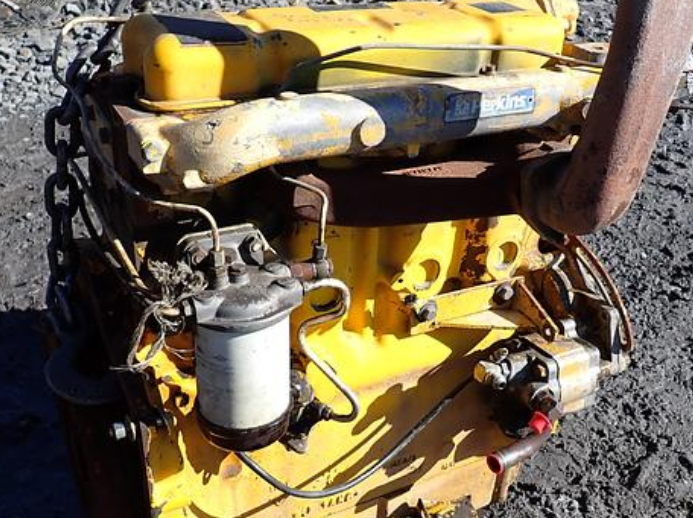
6. Unusual Noises
Also, you might hear unusual noises at your Perkins engine. It makes a noise like knocking, grinding, or rattling during engine operation. These noises may vary in intensity and pitch depending on the underlying problem.
Causes:
- Malfunctioning fuel nozzles/injectors can cause uneven fuel delivery, leading to knocking or rattling sounds.
- Malfunctioning turbocharger may produce whining or grinding noises due to internal damage or wear.
- Worn piston pin bushings can create knocking or tapping noises during engine operation.
- Worn rod/main bearings lead to knocking sounds, indicating excessive wear or damage to the engine’s moving parts.
- Too much valve lash causes tapping or clicking noises due to improper clearance between the valve and rocker arm.
Solution: Replacing or cleaning faulty components and making necessary adjustments.
7. Engine Smoking (Black, White, Blue Smoke)
Perkins diesel engines may experience various smoking issues, including black smoke, white smoke, and blue smoke. Below, we outline each type of smoke and their potential causes.
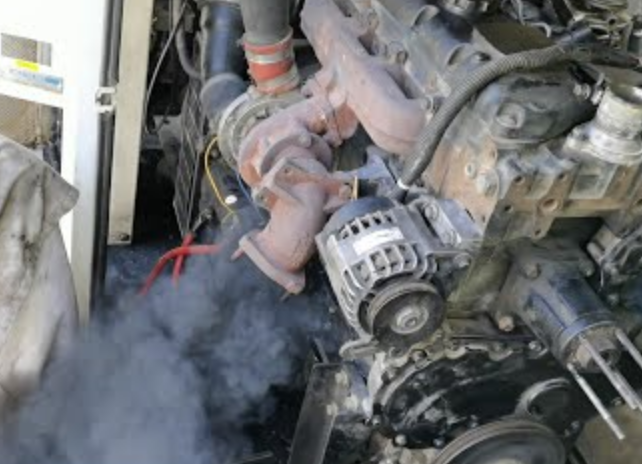
Excessive Black Smoke at Full Load
If your diesel engine has excessive black smoke at full load situation, and accompanied by hot, unburned fuel, is a common sign of an incomplete combustion in the engine.
Cause:
- Dirty primary/secondary air cleaner restricts airflow, causing improper combustion and black smoke.
- Operating in too high a gear leads to inefficient combustion, resulting in excessive smoke.
- Over-fueling causes the engine to burn more fuel than necessary, producing black smoke.
- Overloading puts excessive strain on the engine, leading to incomplete combustion and black smoke.
Solution: clean or replace the air cleaner, shift to a lower gear, adjust the fuel delivery system to prevent over-fueling, and avoid overloading the engine.
Blue Smoke
Perkins diesel engine has blue smoke indicates oil burning, often characterized by a blue tint to the exhaust smoke.
Causes:
- Worn turbocharger seals allow oil to enter the exhaust system, causing blue smoke.
- Worn rings/liners allow oil to seep into the combustion chamber, leading to blue smoke.
- Worn valve guides let oil enter the combustion chamber, resulting in blue smoke.
- Hours on engine: As the engine accumulates hours, natural wear leads to oil burning and blue smoke.
Solution: Replace damaged turbocharger seals, worn rings, liners, and valve guides to prevent oil leaks. Regular maintenance and timely part replacements help minimize oil burning.
White Smoke
White smoke can occur in two situations:
The first is steam produced by water in the combustion chamber.
Cause:
- Cracked head and/or liners allow coolant to enter the combustion chamber, causing white smoke.
- Leaking head gasket causes coolant to leak into the combustion chamber, resulting in white smoke.
Solution: replace any cracked head or liners to prevent coolant leakage into the combustion chamber, and replace the leaking head gasket to stop coolant from entering.
The second is unburned fuel during start-up
Cause:
- Incorrect starting procedure results in improper engine start-up, preventing it from starting correctly.
- Incorrect fuel injector timing disrupts proper fuel delivery, leading to difficulties in engine starting.
- Faulty injector fails to atomize fuel correctly, causing the engine to struggle or fail to start.
Solution: Follow the correct start-up procedure, adjust fuel injector timing, and replace or clean faulty injectors for proper fuel combustion.
Part 2. Upgrade Starter to Prevent Perkins Engine Startup Problem
For Perkins diesel engines, the quality of the starter also directly affects success of the startup. Traditional electric starters may encounter issues such as low battery power or excessive wear, which can result in failed start-ups. Here is one more effective way to start the Perkins diesel engine.
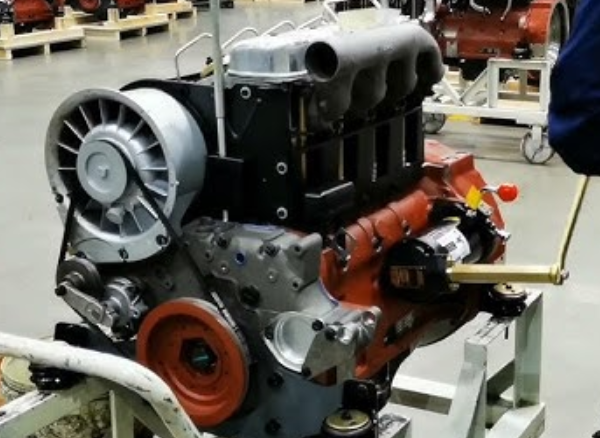
How Spring Starter Can Help Perkins Diesel Engines Start Smoothly?
Spring starter is a device that provides startup power through mechanical force. It stores energy in a high-strength spring and releases this energy during engine startup, providing strong startup power.
No Battery Required
A spring starter does not rely on the battery, so it can still work even if the battery is dead or low. It is especially suitable for environments where power supply is unstable.
Stronger Startup Power
Spring starters can deliver continuous and powerful force, ensuring the engine can start smoothly even in cold weather or under heavy load.
Low Maintenance Costs
Compared to electric starters, spring starters have a simpler structure and longer service life, reducing the need for frequent replacement and maintenance.
Adaptability in Extreme Environments
Regardless of the temperature or altitude, spring starters can provide reliable starting support in cold, high-temperature, or high-altitude environments.
For users of Perkins diesel engines, a spring starter is an excellent solution. This ensures that the engine can start quickly in any condition, avoiding issues with battery failure or insufficient power.
Final Words
The causes of Perkins diesel engine startup problems are diverse, but most issues can be resolved with proper prevention and maintenance. When the starter is the problem, upgrading to a reliable, high-efficiency starting device is crucial. A spring starter, like Cqstart spring starter, which does not rely on the battery and offers powerful starting capabilities, is an ideal solution for Perkins diesel engine startup problems.

